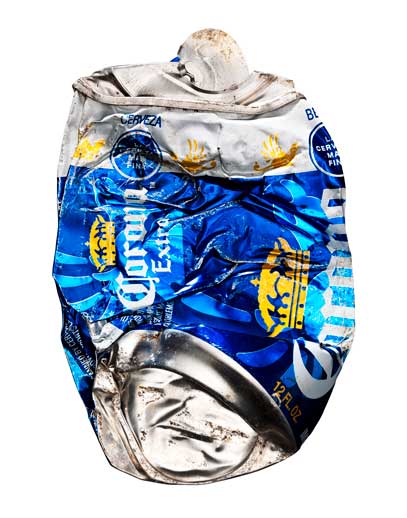When people ask why I run ultramarathons, I tell them it’s because the lessons we learn during one struggle are directly applicable to meeting another challenge. Whatever challenge you’re facing in life, meeting it an overcoming it will help you in meaningful ways during your next challenge.
The Secret Truth of Discipline
I’m sitting in my kitchen on a gray winter morning, lacing up my running shoes and watching light flakes of snow falling on the sidewalk outside. Inside it’s a cozy Sunday morning, and nothing would be better than curling up on the couch with a mug of hot chocolate and watching another episode of Archer.
I consider this very appealing option, but then remember the commitment I made to myself to try for a P.R. at a trail marathon in a couple of months. So I take a moment and summon that resource I need to get myself outside: discipline.
Discipline is often seen as an essential ingredient in successful running. We require discipline to achieve our goals, to get out there in the wind and rain and put in our training miles, to race to our full potentials.
But what, exactly, is discipline – and how do we build it?
Open up your favorite inspirational blog or the life empowerment book on your nightstand, and you’ll find a standard definition of discipline. It often comes from a military mindset, in which discipline means toughness, strength, and victory. “Nothing can be more hurtful to the service, than the neglect of discipline; for that discipline, more than numbers, gives one army the superiority over another,” said George Washington. For General George S. Patton, discipline “must be a habit so ingrained that it is stronger than the excitement of battle.”
In the world of business, discipline is about winning and leading others. “It’s absolutely true that unless you can instill discipline upon yourself, you will never be able to lead others,” according to salesman and motivational speaker Zig Ziglar. Discipline is dry, difficult, ascetic. It’s giving up pleasures and renouncing sin. It’s work, not play

The Truth About Discipline
I’d like to offer a different take on discipline than the military/victory/sacrifice metaphor we’re used to.
Discipline is a deep faith in your own truth.
When we behave in a way that lacks discipline, we are actually denying our own intuitive sense of our truth. Take, for example, addiction. This is a force that draws us away from our own truth and tries to get us to do its own bidding.
The first step to countering addiction, of course, is acknowledging we have a problem. But even when that’s been done, our addictions – which are instantiated in the physical world as patterns of neurons in our brains – try to compel us to follow their actions, rather than follow those we know, at a deeper level, to be our truth.
It’s often very difficult to remained disciplined, as our habits and scripts tell us to smoke another cigarette or drink another bottle of beer or stay on the couch when we know we ought to be eating salad, getting to bed early, and lacing up our running shoes.
How To Build Discipline By Drawing On Your Inner Sense of Truth
So how do we surface these truths, these “truths”? How do we get in touch with them, say hello to them and handle them?
First, we need to distinguish bad “shoulds” from good “should.” Bad “shoulds” are the scripts we’ve internalized that tell us we’re living our lives wrong. They tell us we “should” be making more money, we “should” be a better parent, we “should” generally be better people. These “shoulds” are not your truth; they block you from it.
Good “should” are truths you know intuitively to be best for you. If you feel you “should” stop smoking, you know at some level that stopping smoking is a better choice for your own happiness. If you “should” go out for a run today instead of sleep in, you know that you will be adding joy to your life by getting exercise and working towards your goals. You will be feeding your soul, and that is your truth.
We find these truths using our intuition and self-awareness. We make decisions and set goals based on these truths when our minds are clear and our bodies are rested, in order to have as pure a channel to our inner selves as possible.
Discipline is the act of living these truths, be they physical, mental, or spiritual. Discipline simply means following through on the plan we know will serve our deeper selves.
Identifying our own truths is a skill we can develop. As the great philosopher Bertrand Russell wrote, “Right discipline consists, not in external compulsion, but in the habits of mind which lead spontaneously to desirable rather than undesirable activities.”
When the going gets tough, then, we need not second guess our truth. We need only have faith that the “right” thing to do is to persevere, to run on, to run fast, in spite of other messages we may be getting from our bodies or minds.
Of course, the world – and our own brains – challenge us to live our truth. But the stronger that pull is, the greater opportunity we have to show our belief in our true selves. perhaps that’s why so many great runners – from Charlie Engle to Jim Walmsley – came from substance abuse backgrounds. They needed belief in an inner truth to overcome their addictions, and that same power guides them to achieve in running.
Discipline means finding and holding on to that shining light of our truth, our deepest decisions and convictions, even when things try to bring us way from it. When we gather the fortitude to push on past that needle, or that brownie, or that nice comfortable aid station, and into our deeper truth, we feed our souls.
Bad Data is Worse Than No Data
If we’ve learned one thing from the Fake News era – and Lord knows we should have by now — it’s the perils of bad data.
Sometimes, bad data has nefarious origins. We all know where to look to see examples of purposely misleading or downright false information.
Often, though, bad data is not intentionally misleading, but is a result of competing priorities. In the Big Data era, our own personal data is a valuable commodity for companies that reprocess it and then sell it back to us, ostensibly in a form more helpful to us.
In their urgency to keep us hooked to their product and ultimately sell advertising dollars, however, companies often present us with analyses of our data with a confidence and certainty that is not warranted, given the quality of the data itself.
Running And Bad Data
Runners tend to be a highly data-based crowed. We quantify our speeds, our mileage, our heartrate, and just about anything else that can possibly be assigned a number. Good data, after all, is essential to know if we’ve achieved our goals.
New technology creates an increasingly humongous pool of data about ourselves. Just by strapping on my running watch, I generate thousands of data points per minute, including my GPS location, my heartrate, my motion, and a zillion other elements.
I primarily use two apps to help organize this data into useful form: Strava and Garmin. I use data from my Garmin watch throughout my run to monitor my pace, my distance travelled, and my elevation gain. Afterwards, I use Strava to learn how my run compared to others who’d done the same segments and to see my progress over the course of the run.
I use these two apps becauseof all of the great data they help me collect and track. But not all the data I receive from them is good data.
In their eagerness to provide fitness and training-related data, I often see information that is just plain meaningless. This includes my training level, which Garmin reports based on data collected from my runs, but doesn’t take into always seem to take into account some factors such as elevation gain. My Garmin also reports to me my goal steps, which is a largely meaningless figure and doesn’t take into account, say, steps running vs. steps walking, or other exercise I’ve had that day.
Strava, for its part, has the somewhat annoying habit of telling me if I’m “improving” on a run. But whether I’m improving has everything to do with what the goals of that run were. Was it a tempo run in which I was trying to beat a previous time? Or was it an easy recovery run, with no particular time goals?

In The Real World, Bad Data Is Toxic
If I receive bad data from a fitness app, it’s no big deal. We know to take the metrics they give us in stride and use our common sense in training and competing.
In the real world, though, bad data can be distinctly harmful, even when it is well-intentioned. IBM estimates that bad data costs the US economy roughly $3.1 trillion dollars each year. Debacles from the Enron debacle to 2016 Presidential election predictions were rooted in bad data.
The solution is not to distrust all data. That, indeed, is a recipe for nihilism, and distrust of all media is exactly what has given rise to partisan media. Rather, the solution is to consider the source of your data and how it’s been collected and analyzed.
Moreover, amassing good data means collecting it from multiple data sources when possible. If Garmin watch tells me my training level has decreased but I feel strong and have been running on challenging courses, I factor this data collected into the picture.
Social Distancing and Running in 30 Seconds
The Running Philosopher’s crack running duo demonstrates how — and how not — to social distance while running.
10 Great Resources for Running During COVID-19
Coronavirus has disrupted life across the globe and disrupted everything from local book groups to the Olympics. Something I’ve been thankful for every day over the past couple of weeks is that I’ve been able to keep running.
I’ve had to scold a few absentminded folks on the trails who didn’t seem to understand what six feet of social distance really means (and you should feel free to scold them too!) – but not only have I been able to keep up my running routine, but with a week of warm spring weather and fewer constraints on my time, I’ve been able to start to ramp up my mileage.
I’ve found the following resources on running and coronavirus helpful as I’ve maintained and restructured my running practice over the past couple of weeks.
COVID-19: A Trail Running and Ultrarunning Community Guide
I’ve been turning to this all-purpose summary from iRunFar of what coronavirus is, how to protect against it, and how it affects our running community.
What Runners Need to Know About Coronavirus
Runners World’s occasionally updated coronavirus page with some good advice for how the disease affects runners (as well as the comically understated subheading: “The global pandemic has been in the news a lot lately”).
You Can Go For a Run
A good reminder from GQ magazine that running is still allowed – and encouraged – with a bit of awareness and planning.
How to Run Safely Amid Coronavirus Concerns
Some good advice from medical experts from Runner’s World, including running outside, keeping your immune system healthy, and other tips.

COVID-19 Race Updates: Cancellations, Postponements, and Races Still On
A comprehensive summary of what’s going on in the world of trail and ultrarunning. While many have been cancelled, it’s also good to see a number of races still on (for now), and several more postponed to the fall.
How The Pros Are Quarantraining
Whether elites or everyday couch-to-5k’ers, everyone’s in the same boat. Here’s how some pros are handling the restrictions of coronavirus.
Operation Inspiration
I liked this new initiative from iRunFar to keep our community together and keep us running. I’m submitting something to their Operation Inspiration Airdrop, which calls for short submissions of inspiring runs or workouts. You should too!
You Can Go For a Run
GQ article reminding us that solo jobs are fine as long as you’re social distancing.
How Runners Are Getting Creative During the Pandemic
This Outside Magazine article details a few creative ways runners are still training and adjusting goals.
Running From Coronavirus: A Back-to-Basics Exercise Boom
This New York Times article remind us that even in the big city, people are still running.











